#ARFilters
Explore tagged Tumblr posts
Text
The Filtered Mirror: How Instagram Filters Shape Our Self-Image
“Hey there, fellow filter explorers!” ✨ So, let’s talk about something we all know too well: Instagram filters. You know, the ones that smooth out your skin, make your eyes pop, and give you that “glow-up” in an instant. They’re fun, right? But have you ever stopped to think about

How are these filters changing the way we see ourselves?
Filters have become a staple in our social media routines. They promise to enhance our features, making us look more polished and, dare I say, perfect. But here’s the catch: these filters often present an idealized version of beauty that doesn’t reflect reality. This phenomenon has been termed “digitized dysmorphia,” a concept introduced by Coy-Dibley (2016), which describes the distortion of self-perception due to the prevalence of digitally altered images. While filters can boost confidence temporarily, they can also lead to negative consequences.
Research indicates that frequent use of beauty filters on platforms like Instagram can contribute to body dissatisfaction and lower self-esteem, particularly among young women (Barker, 2020).
The constant comparison to these enhanced images can create a gap between our real selves and the filtered versions we present online.

The pressure to conform to these digital beauty standards is real.
A study by Lo Destro (2024) found that individuals with lower self-esteem or those who are more susceptible to external opinions are more likely to place greater importance on using filters.
This can lead to a cycle where the desire for validation through filtered images outweighs the appreciation of one’s natural appearance.
So, what does this mean for us as digital citizens? It means being aware of how filters influence our self-perception and the perceptions of others. It’s about recognizing that while filters can be fun and creative tools, they shouldn’t define our worth or beauty. Embracing authenticity and promoting a culture of self-acceptance online can help mitigate the negative impacts of these digital enhancements.
In Conclusion 🔚
Instagram filters are more than just tools for enhancing photos; they are shaping our digital identities and influencing our self-image. As we navigate this digital landscape, let’s strive for authenticity and self-love, remembering that the real beauty lies in our unfiltered selves.

References:
Barker, J. W. (2020). Making-up on mobile: The pretty filters and ugly implications of Snapchat. Fashion, Style & Popular Culture, 7(2 & 3), 207-223.
Coy-Dibley, I. (2016). “Digitized Dysmorphia” of the female body: The re/disfigurement of the image. Palgrave Communications, 2(1).
Lo Destro, C. (2024). Unraveling the impact of self-esteem on the utilization of Instagram filters: The mediating role of fear of negative evaluation. Frontiers in Psychology, 15, 1302662.
#InstagramFilters#DigitalCitizenship#BodyImage#MentalHealth#SocialMedia#SelfExpression#ARFilters#DigitalIdentity#BeautyStandards#SelfEsteem#BodyDysmorphia#mda20009
0 notes
Text
😩 Week 9: mAi fAcE? tHe aLgOrItHm aPpRovEs iT (filter not found irl...)
Remember the time Snapchat kinda went trendy because of the dog filter ? Nowadays, it's a trend to use Korean "natural" or with makeup filter to enhance your beauty. But now, I'm on the verge of consult for nose job, botox and maybe cheek filler???
*Apparently... filters = digital identity performance. Let's not think about that, haha...

✨ Filters: Add-ons beauty expectations?
Filters used to be funny... Instead, they're a DEFAULT every time you want to take a selfie with your besties 👯♂️ That thing. The one that makes your skin flawless 💅 , making you look "effortlessly beautiful." Gurl, no. That right there is not your real face. 🥲
According to Rettberg (2014), filters are like the sugar for your drinks — they let the “flavour” (aka beauty aesthetic) come through, and block the “bad bits.” So basically: if you don’t look perfect like your Instagram post or stories… filters will do the job for you.
📲 The Face You vs. the Algorithm You
AR filters have shifted from ✨fun✨ to ✨function✨. Lavrence & Cambre (2020) called this “ambient editing” — the soft, subtle filters that change just enough to mess with your sense of self. Suddenly, even you don’t know what your face looks like without the lashes and lip plump.
It’s giving Snapchat dysmorphia (Rajanala et al., 2018). People literally take filtered selfies to cosmetic surgeons now. Not even trying to look like celebs — just their ✨edited selves✨ We’ve gone from “inspiration pic of Bella Hadid” to “can you make me look like ME… but only on Tuesdays when I have this specific filter on.” 💅

👁 Surveillance Aesthetics — sounds creepy but go ahead
We know apps like Facetune aren't just for quick edits — they kinda subtly teach you to find the flaw parts of yourself that you barely noticed. Elias & Gill refer to this as beauty surveillance — you're the brand, the boss and your own harshest critic. We are so used to the media's definition of "hot" that it's not about the aesthetic anymore. It's emotional labor 📑
And here’s where it gets spicy: pornification (Drenten & Gurrieri, 2019). Filters often push femmes to perform sexualised versions of themselves for higher engagement. The platform wants you to be hot — but only in one very curated, hetero-coded way. 🥵
Cyberfeminists like Haraway (1991) believed tech could free us from these body norms. Right now? I think It’s mostly reinforcing them — just with sparkle overlays.
So yeah, being a digital citizen now means knowing the algorithm is shaping your face and your feelings. Love that for us 😩.
📚 References:
Rettberg, J. W. (2014). Seeing Ourselves Through Technology. Palgrave Macmillan. https://doi.org/10.1057/9781137476661
Ramphul, K., & Mejias, S. G. (2018). Is “Snapchat Dysmorphia” a Real Issue?. Cureus, 10(3). https://doi.org/10.7759/cureus.2263
Rollero, C. (2022). Mass Media Beauty Standards, Body Surveillance, and Relationship Satisfaction within Romantic Couples. International Journal of Environmental Research and Public Health, 19(7), 3833. https://doi.org/10.3390/ijerph19073833
João Magalhães. (2017). Algorithmic visibility – Elements of new regime of visibility. Connected Life. https://www.researchgate.net/publication/321245421_Algorithmic_visibility_-_Elements_of_new_regime_of_visibility
Drenten, J., Gurrieri, L., & Tyler, M. (2019). Sexualized labour in digital culture: Instagram influencers, porn chic and the monetization of attention. Gender, Work & Organization, 27(1), 41–66. https://doi.org/10.1111/gwao.12354
#mda20009#digital citizenship#platform culture#week9#cyberfeminism#arfilters#digitalbeauty#selfsurveillance
1 note
·
View note
Text
Digital Masks or Mirrors? How Beauty Algorithms Fracture & Unite Communities
Scroll through Instagram and TikTok, you’ll find faces smoothed into poreless mannequins, eyes widened to anime proportions, and skin bleached to ethereal glow—all thanks to AR filters like “Bold Glamour”. These digital masks aren’t just fun; they’re rewriting the rules of selfhood. Let’s unpack how AR filters shape communities, fuel brand power, and deepen the rift between authenticity and algorithmic aspiration.
1. Filters as the New Platform Vernacular
AR filters are today’s lingua franca - a visual slang shaping our communication. Instagram’s “Crying Makeup” filter, which aestheticises distress, or Snapchat’s “Gender Swap”, which reinforces binary norms, creates shared cultural codes (Goetz 2021). Yet, as Duffy & Meisner (2022) note, marginalized users often hack these tools: Queer creators subvert beauty filters to celebrate androgeny (#FilterFluidity), while disability advocates use AR to visualize accessible futures (#A11yFilters).
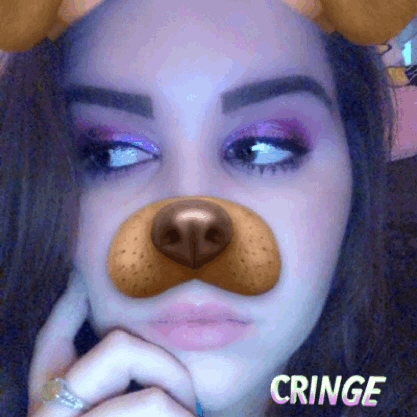
2. Brands: Beauty Gatekeepers or Allies?
Brands like Gucci and Fenty Beauty deploy AR try-ons to gamify consumption, blurring shopping and selfie culture. But when Dove launched the #NoDigitalDistortion campaign, pledging to ban retouching in ads, critics called it hypocrisy - their parent company Unilever still sells skin-lightening creams.

3. The Dysmorphia Feedback Loop
Filters don’t just reflect beauty standards - they “set” them. A survey found that over 70% of young people use AR beauty filters and applications to enhance their photos (Šiđanin et al. 2023). This trend is linked to increased body image dissatisfaction and anxiety, potentially exacerbating body dysmorphic disorder (BDD) symptoms and leading to the pursuit of cosmetic procedures (Laughter et al. 2023)
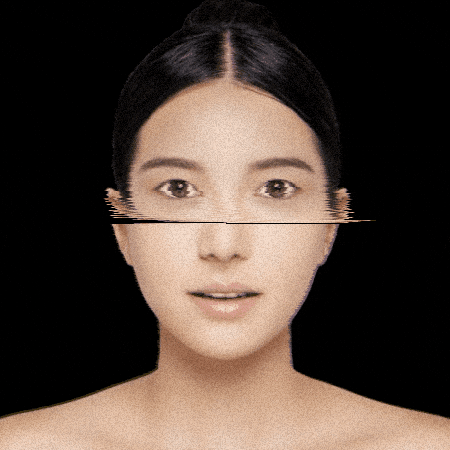
4. Rewriting the Code: Grassroots AR
Resistance blooms in niche corners. Artist “Ars Electronica” crafts filters that distort faces into abstract art, rejecting beauty algorithms. On TikTok, #FilterFreeFriday trends challenge influencer culture, while indie devs create filters celebrating acne, scars, and aging. These acts reclaim digital citizenship - proving self-expression can defy platformization (Šiđanin et al. 2023).
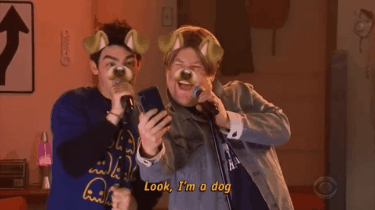
Are AR filters the ultimate tool of self-empowerment - or just Silicon Valley’s new beauty industrial complex? Slide into the comments with your most unfiltered takes.
Reference:
Goetz, T 2021, ‘Swapping Gender is a Snap(chat)’, Catalyst: Feminism, Theory, Technoscience, vol. 7, University of Toronto Libraries - UOTL, no. 2.
Duffy, BE & Meisner, C 2022, ‘Platform governance at the margins: Social media creators’ experiences with algorithmic (in)visibility’, Media Culture & Society, vol. 45, SAGE Publishing, no. 2, pp. 285–304.
Jolly, J 2021, Dove owner Unilever to ban excessive photo editing from its adverts, the Guardian, The Guardian. <https://www.theguardian.com/business/2021/mar/09/dove-owner-unilever-to-ban-excessive-photo-editing-from-its-adverts>.
Šiđanin, I, Milić, B, Mitrović, K & Spajić, J 2023, ‘USE OF BEAUTY APPLICATIONS AND AR BEAUTY FILTERS AMONG YOUNG PEOPLE: TRENDS AND CHALLENGES’, 19th International Scientific Conference on Industrial Systems, Faculty of Technical Sciences, pp. 299–303.
Laughter, MR, Anderson, JB, Maymone, MBC & Kroumpouzos, G 2023, ‘Psychology of aesthetics: Beauty, social media, and body dysmorphic disorder’, Clinics in Dermatology, vol. 41, Elsevier BV, no. 1, pp. 28–32.
0 notes
Text
🪞Do I Look Like My Selfie?
“Do I look like my selfie?” This isn’t just a meme-worthy question—it’s a reflection of a deeper social anxiety I’ve witnessed in myself and many others. As a student who regularly scrolls through Instagram and applies filters to look a little “better,” I’ve started to ask myself: what am I filtering out? This blog post is my reflection on how Augmented Reality (AR) filters have shifted from fun to something far more powerful—and sometimes, harmful.
👁 From Fun to Filtered Pressure

Snapchat’s early filters were silly and obvious—the infamous dog face or rainbow puke. But things have changed. We’ve entered an age of ambient filters that edit our faces subtly, creating the illusion of flawlessness. Lavrence and Cambre (2020) describe this as ambient filtering—so subtle it’s hard to detect, yet it shapes our understanding of what “natural” beauty looks like. This resonates with Rettberg’s (2014) idea of Instagram as a platform that subtly trains users to present an idealized life.
🔍 The Digital-Forensic Gaze
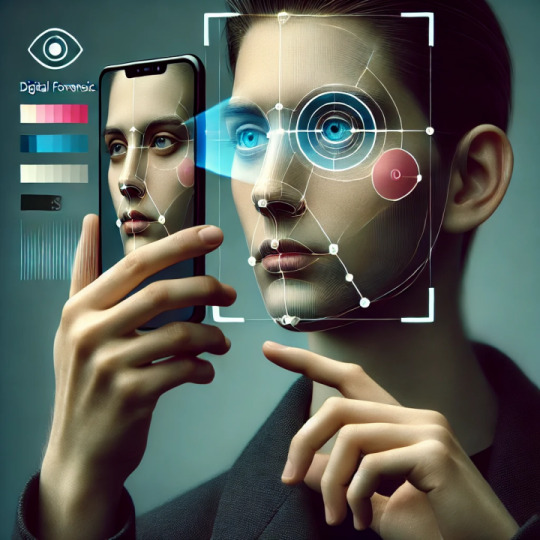
We’ve all done it: zoomed in on a selfie and asked, “Is this face real?” That habit has a name—the digital-forensic gaze (Lavrence & Cambre, 2020). It’s the judgmental stare that detects filters but also enforces perfection. The more we search for flaws, the more we expect everyone to be flawless.
💄 Gendered Filters and Aesthetic Labor
I’ve noticed a pattern: my guy friends use silly filters, but my girl friends (myself included) use beauty filters—to fixthings.
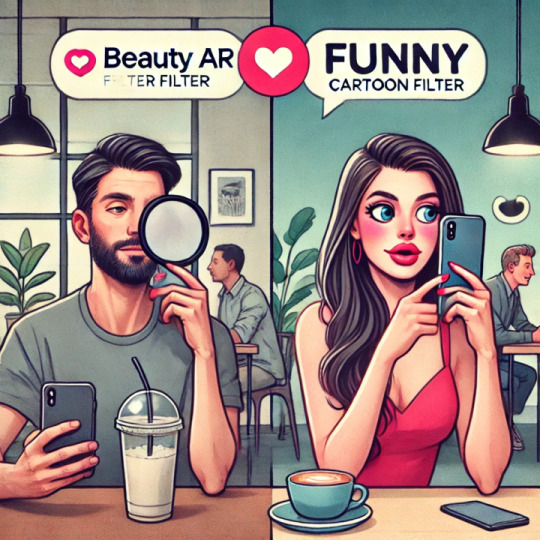
Pescott (2020) calls this out: filters are gendered. Women do more aesthetic labour (Elias et al., 2017)—it’s unpaid work to make ourselves “presentable,” even digitally. Filters are marketed as fun, but for many of us, they feel like a requirement.
I Compared Myself to My Filtered Self
Here’s a confession: Sometimes I look at my filtered selfies and wish I looked like that in real life.
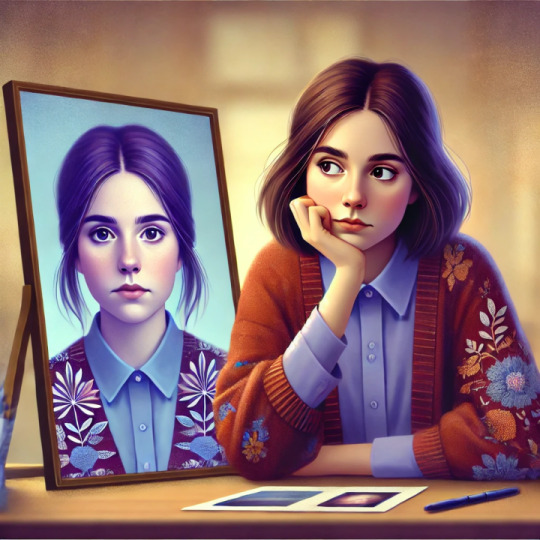
That’s Snapchat dysmorphia (Rajanala et al., 2018)—when people want plastic surgery to look like their filtered selfies. Burnell et al. (2021) found that the more you use filters, the more critical you become of your actual appearance. It’s a toxic loop.
When Filters Enter Surveillance: Alipay’s Case
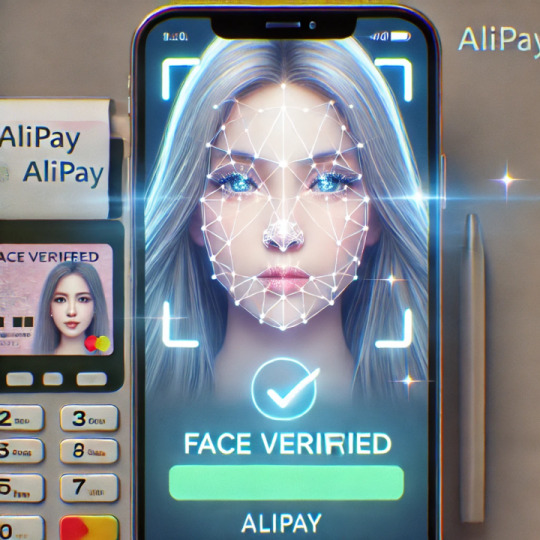
One of the most shocking case studies in class was when we learned Alipay added beauty filters to their facial recognition system. People wanted to look better in their bank app (Peng, 2020). This blurs the line between beauty and biometric control. If even our banking ID photos are filtered, what happens to authenticity?
Can Filters Be Feminist?

Not all filters are evil. Some artists use them for resistance—like glitch filters that distort rather than beautify. Haraway (1991) and Coy-Dibley (2016) argue that tech can empower identity beyond binaries. But Miller & McIntyre (2022) say this is rare. Most filters reinforce the same beauty norms. We need to push for more creative, inclusive tools.
🪞Final Reflection: Why Do I Want to Look Like That?
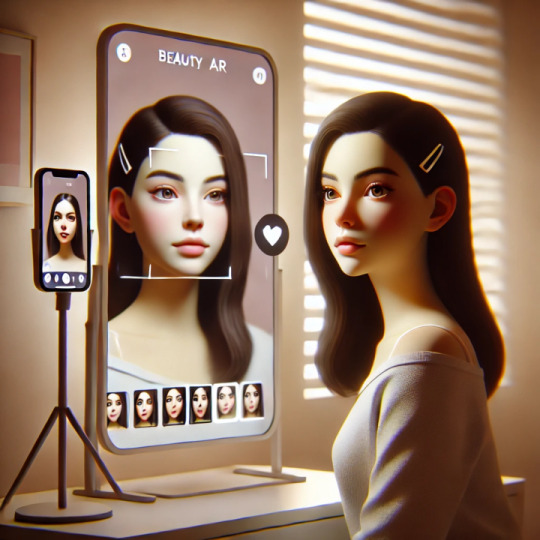
Filters aren’t just editing tools. They’re shaping culture, beauty, and identity. As students—and users—we need to ask harder questions. Do I look like my selfie? Maybe the real question is: Why do I want to? As a student, I’m learning to balance creativity and critical thinking—even in the way I post online.
📚 References
Coy-Dibley, I. (2016). Digitised dysmorphia. Palgrave Communications https://www.nature.com/articles/palcomms201640
Elias, A., Gill, R., & Scharff, C. (2017). Aesthetic Labour: Rethinking Beauty Politics in Neoliberalism. Springer. https://link.springer.com/book/10.1057/9781137476661
Fredrickson, B. L., & Roberts, T. (1997). Objectification theory. Psychology of Women Quarterly, 21(2), 173–206.
Fredrickson, B. L., & Roberts, T. (1997). Objectification theory. Psychology of Women Quarterly, 21(2), 173–206. https://journals.sagepub.com/doi/abs/10.1177/1367549417705604
Haraway, D. (1991). A Cyborg Manifesto. The Anarchist Library. https://theanarchistlibrary.org/library/donna-haraway-a-cyborg-manifesto
Lavrence, C., & Cambre, C. (2020). “Do I look like my selfie?”: Filters and the digital-forensic gaze. Feminist Media Studies. https://journals.sagepub.com/doi/10.1177/2056305120965155
Miller, L., & McIntyre, K. (2022). From surgery to Cyborgs. Feminist Media Studies. https://www.tandfonline.com/doi/full/10.1080/14680777.2020.1750779
Peng, A. (2020). Alipay adds “beauty filters” to face-scan payments. TechNode. https://www.tandfonline.com/doi/full/10.1080/14680777.2020.1750779
Pescott, C. (2020). “I wish I was wearing a filter right now.” Journal of Youth Studies. https://journals.sagepub.com/doi/10.1177/1461444821993038
Rettberg, J. W. (2014). Seeing ourselves through technology. Palgrave Macmillan. https://link.springer.com/book/10.1057/9781137476661
#FilteredSelf#ARFilters#Cyberfeminism#SnapchatDysmorphia#SelfieCulture#BeautyPolitic#Postfeminism#mda20009#week8
0 notes
Text
[Week 8]
📱 The Internet Sold Us a New Face - Now We Hate Our Own
"Fix Me" Filters & Fake Perfection: A Glitch in Reality?
Surgery filters have been widely criticized for promoting unrealistic beauty standards and harming mental health. One example is Instagram's "Fix Me" filter, banned due to its damaging psychological impact (BBC, 2019).
The filter mimicked a surgeon's markings on a patient's face, illustrating the process of cosmetic enhancement. Its creator, Daniel Mooney, intended it as a critique rather than a glorification of plastic surgery, highlighting its unglamorous reality (Mooney, 2019). However, Instagram's ban underscored a deeper issue - while filters can reinforce harmful beauty ideals, they are not the root cause. Instead, they reflect and amplify pre-existing societal pressures, making unattainable beauty the norm rather than the exception (Elias & Gill, 2017).
🚨 The real issue? Filters are not simply a tech innovation gone wrong but an extension of a billion-dollar beauty industry that profits from insecurity (Laham, 2020). While Mooney's filter was removed, the pressure to conform to digitally enhanced beauty remains stronger than ever, signaling that the issue runs more profound than any single app.
💭 So, are AR filters driving these toxic standards or merely exposing a system that has long dictated what is considered beautiful?
Eurocentric Beauty, Social Comparison & the Profitable Business of Insecurity

Leon Festinger's Social Comparison Theory (1954) explains how individuals evaluate self-worth by comparing themselves to societal norms (Festinger, 1954).
🔍 But beauty is not just an aesthetic preference; it is an industry that thrives on exclusion. The global Beauty & Personal Care, worth US$677.19bn, sustains itself by making people feel like they are never enough (Statista, 2024). In this economy, insecurity is currency, and filters are the salespeople, constantly redefining what is desirable.
✨ A striking example? Bella Hadid underwent rhinoplasty at just 14 (Ayoub, 2022), a decision shaped by the Eurocentric beauty ideals dominating her industry. Growing up in the spotlight, she was surrounded by a standard that favored features historically associated with whiteness - high cheekbones, small noses, and fair skin.
💭 Years later, she expressed regret, saying: "I wish I had kept the nose of my ancestors."
Her experience reveals how algorithmically curated beauty norms shape self-perception, pressuring individuals - especially those in the public eye - to conform from an early age.
Dr. Michelle Smith linked this to 19th-century ethnic rhinoplasty, when people altered their features to "pass as white" for social mobility (Ayoub, 2022). This historical parallel reveals how beauty has always been a tool of privilege and power.
Social media intensifies this struggle. Platforms like Instagram and Snapchat profit from comparison, filling feeds with filtered, surgically enhanced faces that subtly suggest: This is what you should look like (Lavrence & Cambre, 2020).
💥 The result? This cycle fuels body dysmorphia, particularly among women and marginalized communities. However, resistance is growing - movements like body positivity, digital detoxing, and online activism challenge the dominant beauty narrative (Coy-Dibley, 2016).
Yet, the damage is already done. The rise of "Snapchat Dysmorphia" proves that filters do not just change appearances; they change how we see ourselves.
Snapchat Stole My Face: When Filters Rewrite Self-Perception
🎥 Four video testimonies reveal a disturbing trend: Women, confronted with their unfiltered reflections, express profound depression and self-disappointment (Hawker & Carah, 2020). This is not a fleeting moment of dissatisfaction - it is a psychological fracture, where the self they see in the mirror no longer matches the self they have been conditioned to expect.
For some, the solution is drastic: deleting Snapchat altogether, a digital amputation in pursuit of mental stability. For others, the cycle of insecurity continues - trapped in a loop where natural skin textures and facial features feel like defects rather than differences (Hawker & Carah, 2020).
🤳 This phenomenon directly aligns with Festinger's Social Comparison Theory - filters do not just offer enhancements; they create a new, unattainable benchmark for beauty, forcing users into constant comparison (Festinger, 1954). When social media rewards digital perfection, reality starts feeling like a flaw.
💔 Ultimately, these experiences reinforce the central theme of this essay: The internet did not just sell us a new face - it made us hate our real one. Through AR filters, beauty standards have shifted from aspirational to artificial, leaving a generation struggling to accept their reflections (Burnell et al., 2021).
What do you think? Are filters the real villain, or are they just exposing a much bigger issue? 💬 Drop your thoughts below! ⬇️
References
Ayoub, S. (2022, March 18). On Bella Hadid, beauty standards and the shame of hiding your ethnicity. The Sydney Morning Herald. https://www.smh.com.au/lifestyle/beauty/on-bella-hadid-beauty-standards-and-the-shame-of-hiding-your-ethnicity-20220318-p5a5rd.html
BBC. (2019, October 23). Instagram bans “cosmetic surgery” filters. BBC News. https://www.bbc.com/news/business-50152053
Burnell, K., Kurup, A. R., & Underwood, M. K. (2021). Snapchat lenses and body image concerns. New Media & Society, 24(9), 146144482199303. https://doi.org/10.1177/1461444821993038
Coy-Dibley, I. (2016). “Digitized Dysmorphia” of the female body: the re/disfigurement of the image. Palgrave Communications, 2(1), 1–9. https://doi.org/10.1057/palcomms.2016.40
danielmooney . (2019). Instagram. Instagram.com. https://www.instagram.com/danielmooney/p/Bx2XdrSIc2R/?img_index=1
Elias, A. S., & Gill, R. (2017). Beauty surveillance: The digital self-monitoring cultures of neoliberalism. European Journal of Cultural Studies, 21(1), 59–77.
Festinger, L. (1954). A Theory of Social Comparison Processes. Human Relations, 7(2), 117–140. https://doi.org/10.1177/001872675400700202
Hawker, K., & Carah, N. (2020). Snapchat’s augmented reality brand culture: sponsored filters and lenses as digital piecework. Continuum, 35(1), 1–18. https://doi.org/10.1080/10304312.2020.1827370
Laham, M. (2020). Made Up. Google Books. https://books.google.com.vn/books?hl=en&lr=&id=sgPzDwAAQBAJ&oi=fnd&pg=PR9&dq=billion-dollar+beauty+industry+that+profits+from+insecurity&ots=AZ_Qn9qi2Y&sig=fo1J-veHSTuCngYQ0c2NacQ5-iE&redir_esc=y#v=onepage&q&f=false
Lavrence, C., & Cambre, C. (2020). “Do I Look Like My Selfie?”: Filters and the Digital-Forensic Gaze. Social Media + Society, 6(4), 205630512095518. https://doi.org/10.1177/2056305120955182
Statista. (2024). Beauty & Personal Care - Worldwide | Statista Market Forecast. Statista. https://www.statista.com/outlook/cmo/beauty-personal-care/worldwide
#mda20009#BeautyStandards#SocialMediaEffects#DigitalPerfection#SelfLove#BodyImage#MentalHealthMatters#ARFilters#SnapchatDysmorphia#EurocentricBeauty#BeautyIndustry#UnrealisticStandards#FaceFilters#WhoDefinesBeauty#GlitchInReality#TheCostOfPerfection#FilteredReality#ComparisonCulture#DigitalInsecurity
0 notes
Text
Secrets Revealed: How to Skyrocket Your Social Media Engagement!
Explore the future of digital marketing with our expert insights and actionable strategies! Dive into our video series for insider tips on boosting engagement and driving growth. Don’t miss our exclusive behind-the-scenes stories, revealing what’s next in our journey. Discover our curated collection of must-have products, perfect for elevating your workspace.
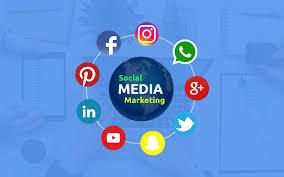
Join our vibrant community of industry leaders for networking and collaboration opportunities. Transform your experience with interactive AR filters, offering a virtual taste of our latest offerings. Experience personalized service with tailored solutions designed to meet your unique needs. Embrace sustainability with our eco-friendly practices and join us in making a positive impact!
0 notes
Text
Uh oh! It looks like the Necromancer's magic has leaked over into our world!
With the Keepers of Eniv Corrupted Eyes filter you can suffer the same fate as your Enivi.
Use the filter and tag @keepersofeniv on Instagram, BlueSky, TikTok, or Tumblr to earn extra event rewards! Just let us know your username and if you want the Corrupted Eyes or Corrupted Soul added to your account!
Haven't joined our community yet? Start Playing Free Today! https://www.keepersofeniv.com
Keepers of Eniv is a free-to-play ARPG meets SIM game. Create your Enivi with our free to use Art Packs, then grow them through creative writing and painting prompts and more! Play games, meet new friends, and flex your creative muscles with Keepers of Eniv!
#arpg#horse game#horse sim#arpg species#closed species#unicorn game#sim game#unicorn sim#browser game#fantasy horse game#arfilter
0 notes
Video
instagram
Prepping for segmentation. . . . #art #digitalart #mask #arfilters (at Dallas, Texas) https://www.instagram.com/p/CE0Cy92HZsL/?igshid=11kvwq3u0zuxy
1 note
·
View note
Photo
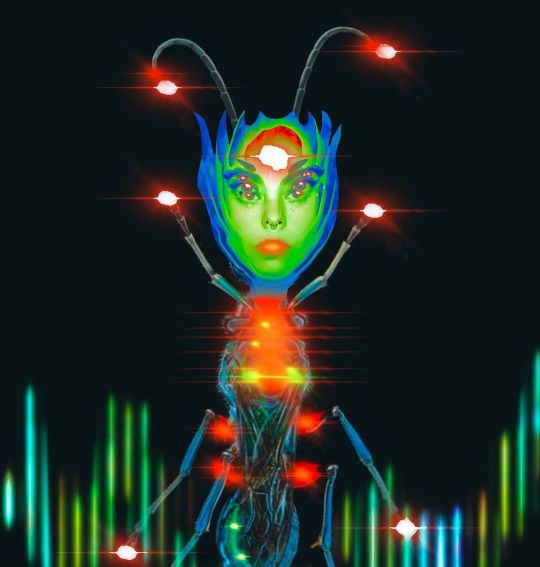
Bruits de la Nuit is out all over the galaxy! The second single from my album Heart in a Box from my cricket soul to the universe!!! I am a natural born singer! My past life could have well been a cricket one… No matter where I go these insects sing along endlessly. They act collectively and in harmony! A beautiful nomad story ! Crickets from north to south Crickets singing during the night! Crickets from Mexico, crickets from Montréal ! Thank you master sound @e.tourangeau for such a nice accomplishment! 🤖🫀👁🇲🇽🇨🇦🔥🦗🦗🦗🦗🦗🦗🦗🦗🦗🦗🦗🦗 The AR filter is live on my @metaspark IG profile!!! Spread the soooooong! . . . . . #alterlatina #grillo #chapulin #chapultepec #chapultepeca #mylifeisafilm #femaleartist #singersongwriter #musicproducer #performer #arfilters #digitalartist #metaspark #mexico #montreal #quebec #canada @metaforcreators (at Montreal, Quebec) https://www.instagram.com/p/CluHKczPekD/?igshid=NGJjMDIxMWI=
#alterlatina#grillo#chapulin#chapultepec#chapultepeca#mylifeisafilm#femaleartist#singersongwriter#musicproducer#performer#arfilters#digitalartist#metaspark#mexico#montreal#quebec#canada
0 notes
Text

#solar#vaporwave#solarw#graphic#xuxoe#simulation#procreate#digitalartist#newtop#arfilter#contemp#newae#pixel#modern#abstractart#cryptoart#NFT#NF#cyberpunk#sparkAR#webart#loop#trippy#motion#cool#chrom
56 notes
·
View notes
Text
Digital nature
7 notes
·
View notes
Video
instagram
👁I made an Instagram AR Filter 👁 You can try it out in the middle tab of my IG profile It’s called “the watcher watches” . (p.s. the screen glitches when you blink)
3 notes
·
View notes
Text
youtube
SQUADTS AR Filter Playthrough
#squadt#squadts#arfilter#augmented reality#toy#vinyl toys#custom toys#nft#dev#development#3d#cgi#3d cgi#Youtube
0 notes
Photo
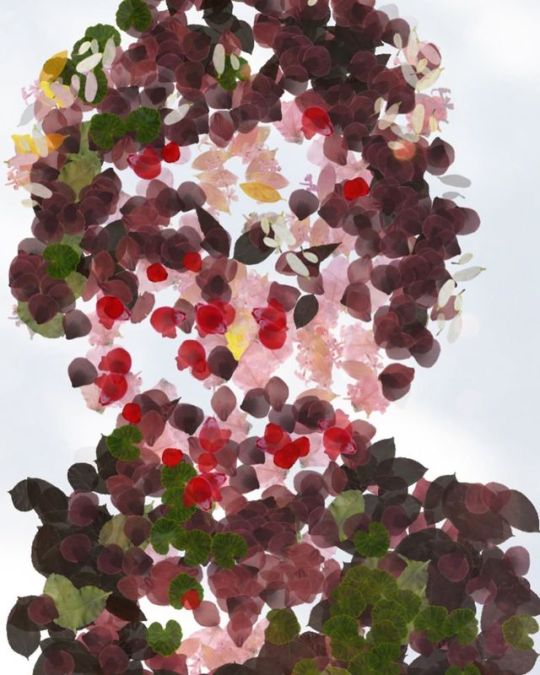
これハマるよ #SparkAR #ARfilter #AR #InstagramAR ←意味変わってくるね https://www.instagram.com/p/B3hR85lD6KM/?igshid=1e4mcfogixu3c
1 note
·
View note
Text
Công nghệ AR - Nâng tầm trải nghiệm
Công nghệ AR đã nâng tầm trải nghiệm của người dùng trên mạng xã hội như thế nào?
Cùng Top Group tìm hiểu nhé!
0 notes
Text
Công nghệ AR - Nâng tầm trải nghiệm
Công nghệ AR đã nâng tầm trải nghiệm của người dùng trên mạng xã hội như thế nào?
Cùng Top Group tìm hiểu nhé!
#socialnetwork
1 note
·
View note